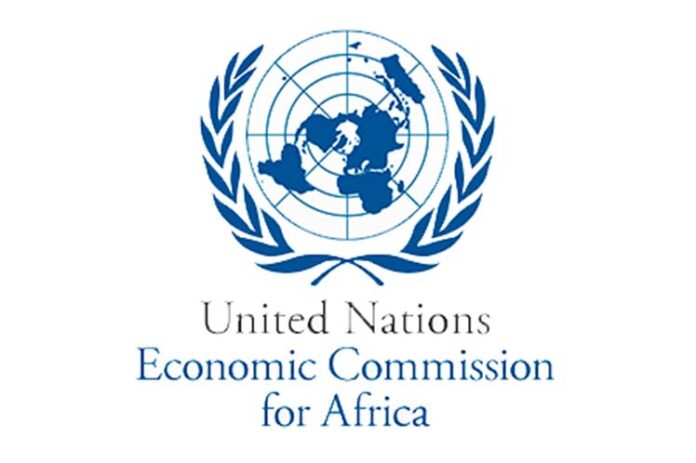The United Nations Economic Commission for Africa has called for more policies on good land governance to promote people-centred economic growth in Africa.
Ms. Mama Keita, Director, Sub-Regional Office for East Africa, (SRO-EA, UNECA) said this at the fourth Conference on Land Policy in Africa (CLPA-2021), being held in Rwanda, Kigali in hybrid format.
According to the IGI Global website, land governance involves a procedure, policies, processes and institutions by which land, property and other natural resources are managed.
This includes decisions on access to land, land rights, land use, and land development. All countries have evolved a policy on how to deal with the management of land in their societies.
They have to deal with the four functions of land tenure, land value, land use, and land development in some way or another.
In every society, sound land governance is the key toward the achievement of sustainable development.
Keita, however, said the CLPA was established in 2014 and had become a major platform for experience sharing and learning.
The sub-regional director pointed out that it was in support of the effective implementation of the African Union (AU) agenda on land, from a wide range of perspectives.
She said the theme of the conference was in line with the decision of the AU that 2021 be the year of Arts, Culture and Heritage.
She added that it was also in line with the United Nations declaration as the year of Creative Economy for Sustainable Development.
The theme for this year is “Land governance for safeguarding art, culture and heritage towards the Africa We Want”.
“The creative economy is among the most rapidly growing sectors of the world economy generating over 30 million jobs worldwide and employing more young people under 30 years old than any other sector.
“Through cultural and creative industries, income can be generated, jobs created, trade opportunities increased and social harmony enhanced through music, film, software, advertising, entertainment, architecture, visual arts, publishing and tourism.
“All these opportunities can be greatly facilitated by good land governance that facilitates sustainable management and use of forests, landscapes, rivers and ecological resources for economic and social benefits for culture and creative industries.
She noted that there was no doubt that land was the greatest heritage for Africa and Africans “whose value transcends from one generation to the next”.
She further stressed that by developing effective governance policies and practices to secure the heritage could promote transformations that could contribute to eliminating poverty and hunger to increase productivity.
“(Thus) promoting sustainable agriculture by harnessing technology, innovation and systems addressing gender equality and women empowerment and promoting people-centred economic growth.”
Keita emphasised that creatives could help make technical land reform information more accessible.
“Land governance information can be rendered in music, film, visual arts, short stories and animation, and presented in different African languages for better reach.
“Traditional institutions and alternative dispute resolution mechanisms are being utilised, alongside statutory law, to address disputes.”
She, however, added that more still needed to be done.
Also speaking, Dr Beth Dunford, African Development Bank (AfDB) Vice President for Agriculture, Human and Social Development, advocated for equitable access, use, and ownership by all community members, particularly women and the youth.
Dunford was represented by Ms. Aissa Toure, Country Manager, AfDB, Rwanda.
“Land is a key input to food production and a major source of capital for the poor. In any program on land reform and women’s land rights in Africa, the importance of land and its unequal distribution between male and female should be given greater consideration.
“Land is culturally tied to traditional practices. The centrality of land to African economies has to be carefully handled and examined in respect to such traditional culture and heritage.
“Equal distribution among women and men needs to be given attention in any programme on land reform and women’s land rights in Africa.”
The bank’s vice president assured of continued the AfDB’s support to ensure that all member countries continued to integrate land in the centre of national development and policy frameworks.
Furthermore, Amb. Josefa Sacko, Commissioner for Agriculture, Rural Development, Blue Economy and Sustainable Environment, AU Commission (AUC) urged member states to develop comprehensive land policies to address the human, financial and technical capacity gaps.
Sacko added that this should be done in accordance with the AU Framework and Guidelines on Land Policy in Africa.
“As a continent, a lot of initiatives related to land have been implemented although several member states have progressed in developing land policies and undertaking reforms we still witness several challenges in the sector such as lack of capacity trained personnel on land governance institutions.
“The overall goal of this conference is to deepen capacity for land policy development, implementation and monitoring with a specific focus on emerging issues and African Union commitment”
The overall objective of CLPA-2021 is to deepen commitment and strengthen capacity for land policy development, implementation, and monitoring in Africa.
This is through improved access to knowledge and information in support of evidence-based land policymaking.
The dialogue would also foster improved networking, partnerships and resources for land governance and land policy in Africa.




